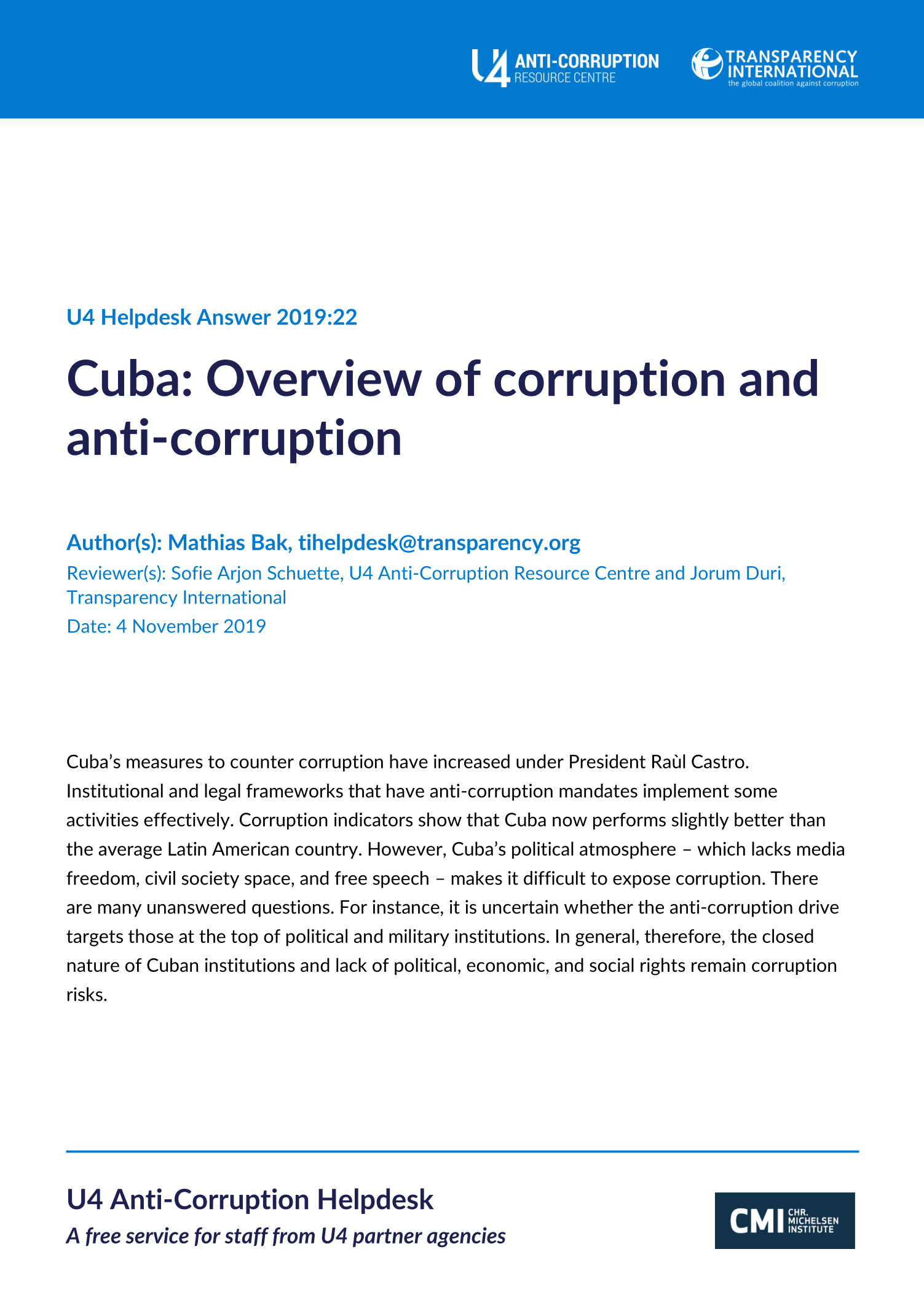Main points
- Despite an anti-corruption drive and the fact that Cuba performs better than the average country in Latin America and the Caribbean, evidence suggests that corruption is still a major issue.
- Though it is difficult to gain insights into the exact patterns of corruption in Cuba, available evidence suggests that bribery and theft are common issues.
- Since the death of Fidel Castro, the army has increased its hold on Cuban society and has emerged as a central actor in both politics and the economy. These developments are associated with some serious corruption risks.
- Severe repression of independent civil society organisations and media outlets creates a culture where it is difficult to expose corruption and hold the government of Cuba accountable.
- In general, Cuba’s ability to expose and get to grips with corruption is hindered by limited political and civil liberties and one of the world’s most restrictive media environments.

